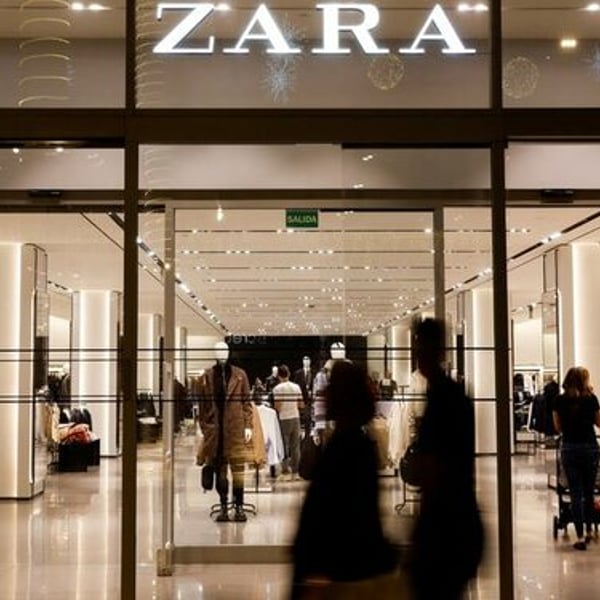Published
December 11, 2024
Zara owner Inditex’s nine-month results on Wednesday came with news of strong trading for the start of the festive season, with its revenues rising as much as 9% in the six weeks to 9 December.
For the weeks including the key Black Friday period that growth is faster than during the first nine months of the year.
The company talked of “a very robust operating performance due to the creativity of the teams and the strong execution of the fully integrated store and online business model. The Autumn/Winter collections have been very well received by our customers”.
Looking at sales in the nine months to October, they grew 10.5% in constant currency, “showing very satisfactory development both in stores and online. Sales were positive in all concepts. We continue to operate with very healthy margins on sales across the different lines of the income statement”.
Reported sales grew 7.1% to reach €27.4 billion (so that 9% increase at the start of the fourth quarter is clearly an improvement in its performance) and gross profit increased 7.2% to €16.3 billion. The gross margin reached 59.4% (+4 bps year on year).
And following several years of high inflation, it was good to see that “all expense lines have shown a favourable evolution. Operating expenses increased 7%, below sales growth”.
EBITDA increased 7.2% to €8 billion, EBIT increased 9.3% to €5.7 billion and pre-tax profit increased 9.9% to €5.8 billion. Net income was up 8.5% at €4.4 billion.
The company said its key priorities “are to continually improve the fashion proposition, to enhance the customer experience, to increase our focus on sustainability and to preserve the talent and commitment of our people. Prioritising these areas will drive long-term growth. To take our business model to the next level and extend our differentiation further we are developing several initiatives in all key areas for the coming years”.
The company operates in 214 markets with low share in a highly fragmented sector “and we see strong growth opportunities. We expect increased sales productivity in our stores going forward. The growth of annual gross space in the period 2024-2026 is expected to be around 5%. Inditex expects space contribution to sales to be positive in this period, in conjunction with a strong evolution of online sales. Optimisation of stores is ongoing”.
One of its major investment areas is in logistics and it said that “in view of the strong future growth opportunities, Inditex is implementing a logistics expansion plan in 2024 and 2025. This extraordinary two-year investment programme focused on the expansion of the business allocates €900 million per year to increase logistics capacities in each of the 2024 and 2025 financial years. These investments will have the highest standards of sustainability and use the most up-to-date technology”.
Other major focuses include new stores — as always — and it said that the new store design for Zara created by its Architectural Studio is featured in openings, enlargements or relocations such as Madrid Hermosilla, Dublin South King, Birmingham Bullring, Istanbul Istinye, Los Angeles Topanga and Bangalore Mall of Asia.
It’s optimising its store presence for other chains too with important openings, enlargements and relocations in all concepts and key examples including Massimo Dutti’s Miami Aventura Mall, Pull&Bear Milan Via Torino, Bershka Madrid Gran Vía, Stradivarius Berlin Alexa Centre, Zara Home Dubai Mall and Oysho A Coruña Plaza de Lugo.
The group is also continuing to introduce new security technology in its stores, which “provides a significant improvement in customer experience, facilitating interaction with our products and improving the purchasing process”. The new system will be fully operational in Zara in the current year and is being progressively implemented in all the concepts as “the basis for us to continue deepening the digitalisation of stores and their integration with online platforms in the coming years”.
Meanwhile in sustainability, it has approved an investment in Epoch Biodesign, a start-up that uses artificial intelligence to design enzymes that allow the recycling of mixed plastics and textiles. This alternative allows the transformation of textile waste into the equivalent of virgin materials, promoting textile-to- textile circularity. Its Sustainability Innovation Hub also currently works with more than 350 start-ups.
Copyright © 2024 FashionNetwork.com All rights reserved.







